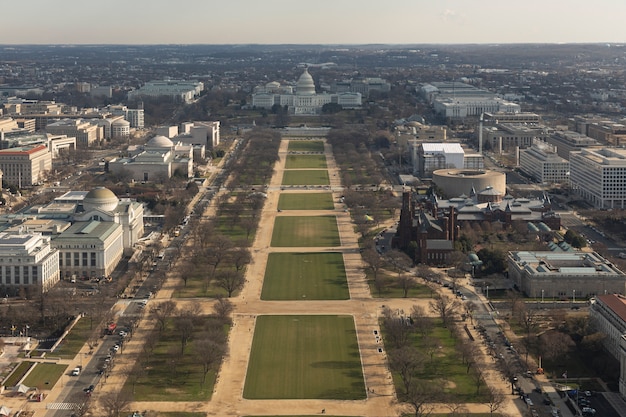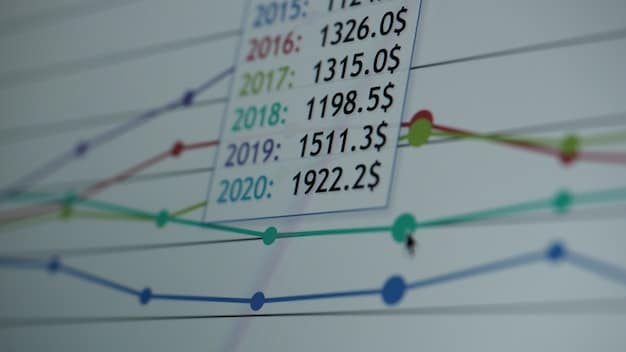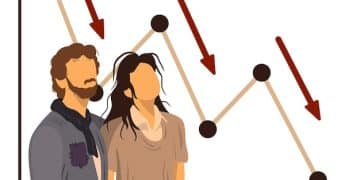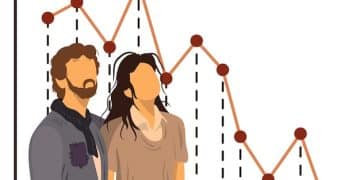Breaking: Fed Rate Hike Shocks Market – How to Protect Your Finances

Breaking: Federal Reserve Announces Unexpected 0.5% Interest Rate Hike – What It Means for Your Finances: The Federal Reserve unexpectedly raised interest rates by 0.5%, signaling a more aggressive stance against inflation and impacting consumer borrowing, investment strategies, and overall economic stability.
In a surprising move, the Federal Reserve has just announced an unexpected 0.5% increase in interest rates. This decision is poised to ripple through the economy, affecting everything from your mortgage payments to your investment portfolio. Let’s delve into what this Breaking: Federal Reserve Announces Unexpected 0.5% Interest Rate Hike – What It Means for Your Finances really means for you.
Understanding the Fed’s Unexpected Rate Hike
The Federal Reserve’s decision to raise interest rates by 0.5% has sent shockwaves through the financial markets. This move, which wasn’t widely anticipated, signals a heightened concern about persistent inflation and a commitment to bring it under control, even if it means potentially slowing down economic growth. Let’s break down the reasons behind this decision.
Why the Fed Raised Rates
Several factors likely contributed to the Fed’s decision. Persistently high inflation, despite previous rate hikes, is a primary driver. Strong labor market data, indicating continued wage growth, also suggests that inflationary pressures are not easing as quickly as policymakers had hoped. A resilient economy, while positive in some respects, can also fuel inflation if demand continues to outpace supply.
The Fed’s Dual Mandate
The Federal Reserve operates under a dual mandate: to maintain price stability and maximize employment. These two goals can sometimes be at odds. In the current environment, the Fed appears to be prioritizing price stability, even if it comes at the expense of slower job growth.
- Controlling Inflation: The primary goal is to curb rising prices.
- Impact on Borrowing: Higher rates make borrowing more expensive.
- Economic Slowdown: This could lead to slower economic growth.
In conclusion, the Fed’s unexpected rate hike is a direct response to persistent inflationary pressures and reflects a commitment to achieving price stability, even amidst potential economic headwinds. It’s crucial for individuals and businesses to understand the implications of this decision and adjust their financial strategies accordingly.

How the Rate Hike Impacts Your Finances
This rate hike will touch many aspects of your financial life, from the interest you pay on your loans to the returns you see on your investments. The increase in the federal funds rate directly influences other interest rates throughout the economy, leading to both positive and negative consequences for consumers and businesses.
Mortgage Rates on the Rise
One of the most immediate impacts will be felt by those with mortgages, particularly adjustable-rate mortgages (ARMs). As interest rates rise, so will monthly mortgage payments. Even those with fixed-rate mortgages could be affected when they look to refinance or purchase a new home.
Credit Card and Loan Interest
Similarly, credit card interest rates are likely to increase, making it more expensive to carry a balance. This also applies to other types of loans, such as auto loans and personal loans. Managing debt becomes even more important in a higher interest rate environment.
- Mortgages: Higher payments for adjustable rates.
- Credit Cards: Increased interest charges.
- Loans: More expensive to borrow money.
Ultimately, the Fed’s rate hike means that borrowing money will become more expensive across the board. It’s a good time to reassess your debt levels, explore options for consolidating debt, and prioritize paying down high-interest balances.
Investing in a High-Interest Rate Environment
The Fed’s rate hike doesn’t just affect borrowing; it also has implications for your investment strategy. While higher interest rates can create challenges in some areas, they also present opportunities for savvy investors. Understanding these dynamics is crucial for navigating the market effectively.
Bonds and Fixed Income
Rising interest rates typically cause bond prices to fall. However, new bonds issued in a higher rate environment will offer higher yields. This can make fixed-income investments more attractive to those seeking stable returns.
Stocks and Equities
The stock market’s reaction to interest rate hikes can be mixed. Initially, stocks may decline as investors worry about the impact on corporate earnings. However, some sectors, such as financials, may benefit from higher rates.
- Bonds: New issues offer higher yields.
- Stocks: Potential for short-term volatility.
- Diversification: Essential to manage risk.
In summary, a high-interest rate environment requires a strategic approach to investing. Diversifying your portfolio, focusing on long-term goals, and considering the potential impact on different asset classes are all important considerations.

Strategies to Protect Your Finances
Given the potential challenges posed by the Fed’s rate hike, it’s essential to take proactive steps to protect your financial well-being. This includes reassessing your budget, managing your debt, and making informed decisions about your savings and investments. A well-thought-out plan can help you weather the storm and even capitalize on new opportunities.
Reassessing Your Budget
Start by reviewing your budget and identifying areas where you can cut back on spending. Small changes, such as reducing discretionary expenses or finding cheaper alternatives, can add up over time.
Managing Your Debt
Prioritize paying down high-interest debt, such as credit card balances. Consider options for consolidating debt or transferring balances to lower-rate cards. Avoid taking on new debt unless absolutely necessary.
- Budgeting: Identify areas to cut back.
- Debt Management: Prioritize high-interest balances.
- Savings: Increase contributions if possible.
In conclusion, protecting your finances in a high-interest rate environment requires a combination of careful planning, disciplined spending, and proactive debt management. By taking these steps, you can mitigate the negative impacts and position yourself for long-term financial success.
The Broader Economic Impact
The Fed’s decision to raise interest rates has implications that extend far beyond individual finances. It’s a tool used to influence the overall economy, affecting everything from business investment to inflation expectations. Understanding these broader impacts is crucial for gauging the potential consequences of the Fed’s actions.
Impact on Businesses
Higher interest rates can make it more expensive for businesses to borrow money for expansion and investment. This can lead to slower economic growth and reduced hiring.
Inflation Expectations
One of the Fed’s primary goals is to anchor inflation expectations. By raising rates, the Fed signals its commitment to controlling inflation, which can influence consumer and business behavior.
- Business Investment: Reduced borrowing and expansion.
- Inflation Expectations: Anchoring expectations is key.
- Economic Growth: Potential for slower growth.
Ultimately, the Fed’s rate hike is a balancing act. The goal is to curb inflation without triggering a recession. The full impact of this decision will unfold over time, requiring careful monitoring and adjustments as needed.
Expert Opinions and Market Reactions
The Fed’s rate hike has elicited a wide range of reactions from economists, analysts, and market participants. Some view it as a necessary step to combat inflation, while others worry about the potential impact on economic growth. Understanding these different perspectives can provide valuable insights into the likely path forward.
Economist Perspectives
Economists are divided on the likely consequences of the rate hike. Some believe it will effectively tame inflation without causing a major recession, while others fear a more severe economic downturn.
Market Reactions
The financial markets have reacted with a mix of volatility and uncertainty. Stocks initially declined following the announcement, while bond yields rose. The long-term impact on asset prices will depend on the Fed’s future actions and the overall health of the economy.
- Economic Outlook: Conflicting opinions among experts.
- Market Volatility: Increased uncertainty in the short term.
- Long-Term Impact: Dependent on future Fed policy.
In conclusion, the market’s reaction and experts’ opinions are varied, reflecting uncertainty. Continuous monitoring, staying informed and consulting financial advisors is key. This will help navigate potential fallout.
| Key Point | Brief Description |
|---|---|
| 📈 Interest Rate Hike | The Federal Reserve raised interest rates by 0.5%. |
| 💰 Impact on Finances | Higher mortgage, credit card, and loan interest rates. |
| 🛡️ Protection Strategies | Reassess budget, manage debt, and plan investments. |
| 🌍 Economic Impact | Slower business investment and potential economic slowdown. |
FAQ
▼
The Federal Reserve raised interest rates to combat persistent inflation, aiming to bring price increases under control and stabilize the economy. Strong labor market data and resilient economic activity also influenced the decision.
▼
If you have an adjustable-rate mortgage (ARM), your monthly payments are likely to increase. Those with fixed-rate mortgages may not see immediate changes but could be affected when refinancing or buying a new home.
▼
Start by reassessing your budget, prioritizing paying down high-interest debt, and considering safer investment options. Cutting discretionary spending and building an emergency fund can also provide a financial buffer.
▼
It is difficult to say definitively. The Federal Reserve is trying to curb inflation without causing a significant economic downturn. The long-term impact will depend on various factors and future policy adjustments.
▼
Consider consulting with a certified financial advisor who can provide tailored guidance based on your specific financial situation and goals. They can help you navigate the changing economic landscape effectively.
Conclusion
The Federal Reserve’s unexpected 0.5% interest rate hike is a significant event that carries broad implications for individuals, businesses, and the overall economy. By understanding the reasons behind this decision, the potential impacts on your finances, and the strategies you can use to protect yourself, you can navigate this challenging environment with greater confidence and resilience.





